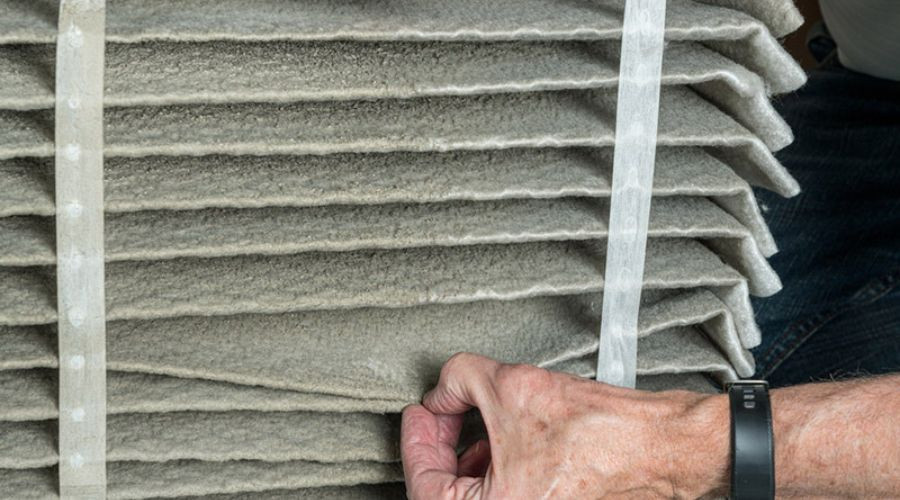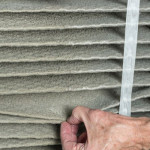All About Air Filters
Air filters are integral to heating and AC systems, yet many people need to understand their importance or the best practices for maintaining them. Without changing the air filters, the whole HVAC system can be negatively affected, causing wear and tear and inefficiency that could’ve been avoided, not to mention how it can impact indoor air quality. Understanding air filters is essential to maintaining a well-functioning air conditioning and heating system.
How Do Air Filters Work?
The purpose of air filters in the home is twofold: to maintain healthy indoor air quality and to protect the components of the HVAC system. AC and furnace filters accomplish these two goals in similar ways. As air passes through the filter, it catches dust, pollen, dander, and other indoor pollutants, removing them from the air. The specific pollutants removed depend on the type of filter. Many people don’t realize that indoor air quality is often worse than outdoor air quality, so using the right kind of filter and replacing it when necessary are huge steps in keeping the air in the home healthy.
The second purpose, protecting the HVAC components, is done similarly. By catching debris and pollutants, the air filter ensures that the air conditioner’s moving parts aren’t affected by them. However, it’s essential to perform air filter replacements routinely to ensure the system’s airflow and efficiency aren’t negatively affected. Replacing filters on time is a crucial part of proper HVAC maintenance.
How Often Should Air Filters Be Replaced?
 One of the most common questions about air filters is how often they should be replaced. While several factors can help determine this, such as the type of filter, the number of people and pets in the house, and how much use the air conditioner or heater gets, there are some general guidelines to keep in mind. For the average household with a disposable filter, once every three months is a good rule of thumb for replacement. Most reusable air filter manufacturers recommend cleaning the filter at least once a month.
One of the most common questions about air filters is how often they should be replaced. While several factors can help determine this, such as the type of filter, the number of people and pets in the house, and how much use the air conditioner or heater gets, there are some general guidelines to keep in mind. For the average household with a disposable filter, once every three months is a good rule of thumb for replacement. Most reusable air filter manufacturers recommend cleaning the filter at least once a month.
Of course, these are just general guidelines. People can use the recommended timeline for filter replacements based on their type of filter. However, homes with pets or people with allergies could benefit from replacing or cleaning their filters more often than recommended, which will help improve indoor air quality and reduce the symptoms of allergies.
What Happens if Air Filters Aren't Replaced on Time?
 It’s easy to forget to change the air filter, and many homeowners may think this isn’t a big deal. However, not performing filter changes when needed can harm the home’s air quality and the HVAC system itself. When filters are overused, they become clogged, making the heating and air conditioning system work harder. This inefficiency can cause utility bills to rise and premature wear and tear to occur, which can reduce the unit’s lifespan.
It’s easy to forget to change the air filter, and many homeowners may think this isn’t a big deal. However, not performing filter changes when needed can harm the home’s air quality and the HVAC system itself. When filters are overused, they become clogged, making the heating and air conditioning system work harder. This inefficiency can cause utility bills to rise and premature wear and tear to occur, which can reduce the unit’s lifespan.
Additionally, when dirty air filters aren’t replaced, they cannot continue to be effective at capturing allergens and pollutants, which can cause poor indoor air quality, leading to an increase in health issues and allergy symptoms. So, something as simple as putting a reminder in the calendar about changing the air filter on time can help homeowners protect their HVAC system, improve their indoor air quality, and save on heating and cooling costs.
About Hall’s Heating & Air
Hall’s Heating & Air has over 40 years of experience serving the Pampa area. They offer straightforward pricing, on-time service, and a 100% satisfaction guarantee. Call them for heating and air conditioning services in Pampa, TX.



